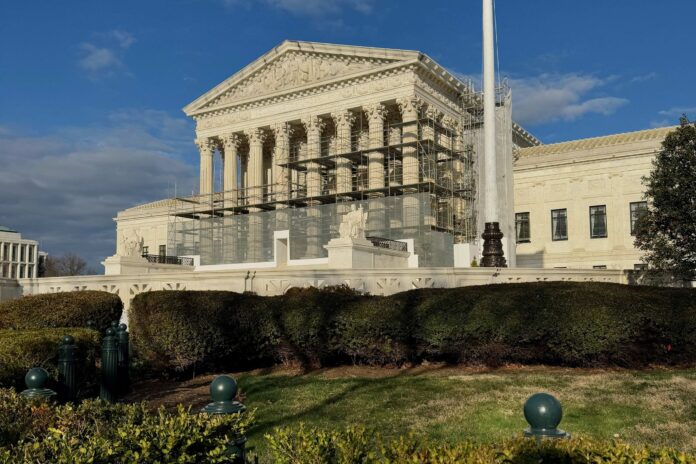Thursday’s decision in CC/Devas (Mauritius) Limited v. Antrix Corp. was no surprise to anyone. As my story on the oral argument in March explained, nobody was willing to defend the standard adopted by the court of appeals. So a succinct and unanimous opinion from Justice Samuel Alito reversing the lower court is just what you would expect.
The case involves the Foreign Sovereign Immunities Act, adopted in 1976 to provide a comprehensive statutory framework for deciding when foreign states will, or will not, be immune from suit in federal court. Generally speaking, the statute recognizes the traditional rule that foreign states have sovereign immunity, but codifies a variety of exceptions, mostly related to various forms of commercial activity. For those exceptions, the statute includes a specific framework of precisely what the exception requires and what if anything else is required for a federal court to have subject-matter jurisdiction over the dispute and personal jurisdiction over the defendant.
This case involves the exception for arbitration awards, as it involves the efforts of a government contractor, Devas, to enforce an arbitral award against a company called Antrix owned by the Indian government. Referring to the Supreme Court’s jurisprudence on the due process required for a court to exercise personal jurisdiction over a defendant, the lower court held that the suit could proceed only if Devas could show “minimum contacts” between Antrix and the particular district in which Devas brought suit.
Alito’s opinion briskly rejects that view. As he puts it at the beginning of his analysis, the problem is that “[t]he text and structure of the FSIA demonstrate that Congress did not require ‘minimum contacts’ over and above the contacts already required by the Act’s enumerated exceptions.”
Alito’s central point is that “any reference to ‘minimum contacts’” is “[n]otably absent” from Section 1330(b) of the FSIA, a detailed provision granting personal jurisdiction. He explains that this “does not mean Congress dispensed altogether with proof of contact between the foreign state and the United States,” because “the FSIA’s immunity exceptions themselves require varying degrees of suit-related domestic contact before a case may proceed.” He discusses several of the exceptions, emphasizing the varying levels of contact they require – ranging from “considerable domestic nexus” in some cases to “less direct or pervasive contact” in others (most notably those involving terrorism). For him, Congress’s choice of varying specific contact standards for the different exceptions shows that the statute cannot be read as having “secretly incorporated” the Supreme Court’s “minimum contacts” cases into the exception for arbitration.
Alito closes by pointing out that Antrix does not even try to “defend the … reasoning” of the lower court, but rather relies on “various alternative reasons” why it should prevail in its dispute with Devas. Responding to that strategy, Alito remarks that the justices “decline to answer those questions today,” and leave “Antrix … welcome to litigate these contentions on remand,” subject only to “principles of forfeiture and waiver” that likely will make it too late to interpose them as objections in the lower courts.
I doubt this case will make a splash of any significance. The only notable thing that could have come from it would have been a refusal of the U.S. courts to enforce the arbitral award despite our joinder of a convention requiring us to do so. Because the court reached the result arbitration experts would have suggested, enforcing the award as the convention requires, the decision should not be noteworthy. Indeed, Alito’s discussion of how the FSIA compels that result is so compressed that I doubt the opinion will even warrant attention in law-school casebooks.
Cases: CC/Devas (Mauritius) Limited v. Antrix Corp. Ltd.
Recommended Citation:
Ronald Mann,
Court rejects heightened requirement for arbitration awards under FSIA,
SCOTUSblog (Jun. 6, 2025, 10:26 AM),
https://www.scotusblog.com/2025/06/court-rejects-heightened-requirement-for-arbitration-awards-under-fsia/





